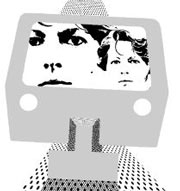DID VOTERS APPROVE $200 million in city support for elevated transit when they voted for the monorail in 2000?
Seattle City Council member Judy Nicastro says they did. She’s proposing a resolution that would commit $200 million of city support, in the form of bonds and other assistance, for the monorail; of that, $20 million would be released immediately if the monorail gets approved in November. Mayor Greg Nickels and key council members are opposing the measure, saying it’s premature and may be fiscally unwise.
Back in November 2000, voters approved Initiative 53 (I-53), which funded the Elevated Transportation Company (ETC) and directed it to come up with a monorail proposal, including funding sources and routes, and bring it back to the voters for approval within three years. Nicastro, along with the ETC’s Harold Robertson, notes that I-53 directed the city to set aside $200 million of bonding capacity to be used “solely toward all or part of the initial public contribution” to the monorail. Now, Nicastro says it’s time to get serious about that commitment. “The voters approved this money in I-53,” Nicastro says.
But did they really? At last Friday’s Seattle City Council Monorail Ad-Hoc Committee meeting, council member Richard Conlin said his interpretation was that I-53 merely reserved the debt capacity in case there was a need for it in the future; it didn’t promise that the city would spend the money. And initiatives can be full of surprises. Another provision in I-53 states that the initiative would “cause a monorail system to be built . . . by providing specific funding in the form of bonds rather than any new taxes.” I-53 author Peter Sherwin says the intent was to inform voters that “if you’re voting for this, you’re not voting for any new taxes.” But the language is ambiguous; could it be interpreted as promising a monorail with no new taxes? It’s now clear that the monorail will rely heavily on taxes if voters decide to build it: Just weeks ago, the ETC persuaded the state Legislature to give the monorail builders the authority to pass a number of new taxes, including car-tab, motor vehicle excise, and property taxes, to pay for the elevated system. Still unknown is how much of that taxing authority the ETC will ask voters to approve on its ballot proposal in November; other question marks include routing and how much the monorail will cost to build and operate. All those things could determine how much city support the monorail really needs—or whether it needs direct city funding at all.
The $200 million, if it is eventually spent (Nicastro’s resolution would just commit bonding capacity for the monorail, not actual cash), would come in the form of so-called “councilmanic” bonds—the kind that “councilmen,” not voters, approve. According to the city’s debt manager, Michael van Dyck, those bonds are usually used to pay for projects that are expected to pay for themselves, like the $73 million Pacific Place parking garage; for projects that won’t pay for themselves but will save money in the long run, like the new City Hall; and for projects—like the monorail—that provide essential city services or promote core city policies.
Currently, the city has about $330 million of debt capacity that’s going unused, meaning that we could borrow that much without going above a state-mandated cap. Whether we can afford another $200 million in debt, however, is another question entirely. “It’s not clear to me how this debt would be repaid,” van Dyck says.
And that’s the rub: The city will be making between $30 million and $50 million in cuts to its 2003 budget this fall. If the entire $200 million were sold as bonds, van Dyck says, the city’s annual debt service on the monorail alone would swell to somewhere between $17 million and $26 million. (The initial $20 million payment alone would produce $1.7 million to $2.6 million in annual debt.) “I do not recall a time when the city ever issued $200 million of [councilmanic debt] for any purpose,” van Dyck says.
Mayor Greg Nickels, a vocal monorail supporter, is balking at Nicastro’s fast-track proposal. He notes that, so far, no one knows what the monorail will look like, whether it will be approved, or how much it will cost. “We just need to have more information before we make this kind of decision,” says Nickels spokesperson Marianne Bichsel.
Conlin, chair of the council’s transportation committee, shares Nickels’ concerns. “This is probably not the right time for this,” Conlin says.







